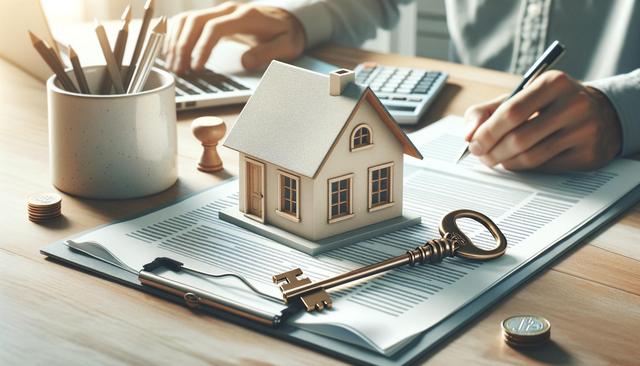Reverse mortgage for seniors
What is a Reverse Mortgage?
A reverse mortgage is a unique financial product designed specifically for seniors, typically aged 62 and older, allowing them to convert a portion of their home equity into cash. Unlike a traditional mortgage where the homeowner makes monthly payments to the lender, a reverse mortgage provides the homeowner with funds. These funds can be received in various forms such as a lump sum, monthly payments, or a line of credit. The loan does not need to be repaid until the homeowner sells the home, moves out permanently, or passes away. This type of mortgage can be a valuable tool for seniors seeking to enhance their retirement income, manage healthcare expenses, or simply enjoy a more comfortable lifestyle without the stress of monthly mortgage payments.

Eligibility and Requirements
To qualify for a reverse mortgage, there are specific eligibility criteria that seniors must meet. Primarily, the borrower must be at least 62 years old and the home must be their primary residence. Additionally, the home must meet certain property standards and be maintained in good condition. The homeowner is also responsible for paying property taxes, homeowner’s insurance, and any applicable homeowners association fees. Financial assessment is another aspect of the qualification process, ensuring that the borrower can afford ongoing property-related expenses. The amount available through a reverse mortgage generally depends on the borrower’s age, the home’s value, and prevailing interest rates.
Benefits of a Reverse Mortgage
Reverse mortgages offer several benefits that can be particularly advantageous for seniors. Some of these benefits include:
- Increased Cash Flow: Provides additional income that can be used for daily living expenses, medical bills, or home improvements.
- No Monthly Mortgage Payments: Reduces financial stress by eliminating the need to make monthly mortgage payments.
- Flexible Disbursement Options: Offers various ways to receive funds, tailored to the homeowner’s financial needs.
- Non-Recourse Loan: Ensures that the borrower or their heirs will never owe more than the home’s value at the time of sale.
These benefits make reverse mortgages a compelling option for seniors looking to leverage their home equity without the burden of monthly repayments.
Potential Drawbacks and Considerations
While reverse mortgages provide numerous advantages, there are also potential drawbacks that seniors should consider. One of the primary concerns is the accumulation of interest on the loan, which can erode home equity over time. Additionally, the costs associated with obtaining a reverse mortgage, such as origination fees and closing costs, can be significant. It’s crucial for seniors to understand that failing to meet the loan’s requirements, such as maintaining the home or paying property taxes, can lead to foreclosure. Moreover, a reverse mortgage can impact the inheritance left to heirs, as the loan must be repaid upon the borrower’s death or sale of the home.
Making an Informed Decision
Deciding whether a reverse mortgage is the right choice requires careful consideration and understanding of both the benefits and potential risks. Seniors should engage in discussions with financial advisors or housing counselors to explore how a reverse mortgage fits into their overall retirement strategy. It is also advisable to compare different lenders and reverse mortgage products to find the most suitable option. By thoroughly assessing their financial situation and long-term goals, seniors can make an informed decision that enhances their financial security and peace of mind during retirement.
